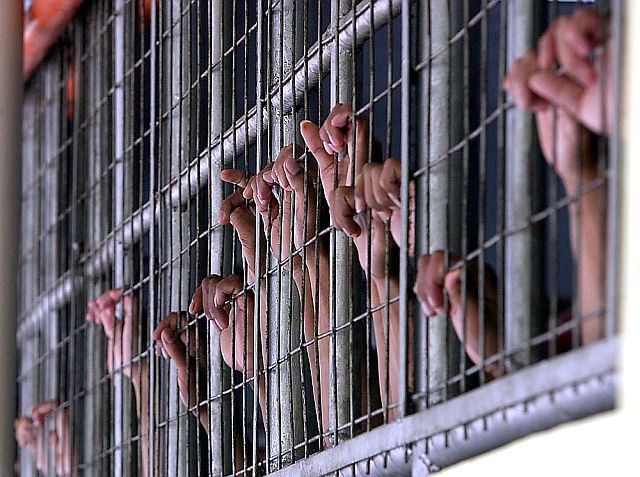
Overcrowding in Cebu’s jails has long been a problem that needs to be addressed.
cdn file photo
WHILE the tight congestion of jails across the country poses a huge problem, detained suspects will just have to squeeze into cells that are filled way beyond capacity as moving them elsewhere could pose an even bigger problem.
Chief Supt. Noli Taliño, director of the Police Regional Office in Central Visayas (PRO-7), said that while inmates in detention cells which are very full can be transferred to facilities that are less congested, doing so may lead to more problems.
“My problem with that idea is that policemen who arrested a particular suspect has responsibility over him or her. What if something will happen to that suspect in case he or she will be placed in another detention cell? We might have problems later on,” Taliño explained.
Despite the worsening condition of overcrowded police stockades, the regional police force is not about to go slow on its renewed operations against drug suspects after Philippine National Police (PNP) chief Ronald “Bato” dela Rosa ordered the resumption of the police war against illegal drugs.
“We just could not stop doing our mandate simply because the jails are now full,” Taliño said.
Taliño expressed hopes that agencies of government will find a way to decongest the jails.
“Sa PNP naman, nagtratrabaho lang tayo. (In the PNP, we are just doing our job),” he added.
The slow disposal of court cases in Cebu City, as well as in other areas of the country, has left more than a thousand pending cases in each trial court, resulting to severe jail overcrowding.
Chief Justice Ma. Lourdes Sereno, in an earlier visit to Cebu, assured that the judiciary was not blind nor deaf to the prisoners’ continuing clamor for the speedy disposition of their cases.
Sereno said the Supreme Court (SC) has devised ways to help ease the case loads of judges such as the implementation of the electronic court system or E-court which allows judges and court personnel to organize case flows from the filing of complaints up to their resolution and enforcement.
Other programs to decongest jails include “rolling courtrooms” called Enhanced Justice on Wheels where hearings are held for inmates ready to enter a “guilty” plea during arraignment and who have served time in jail longer than their supposed sentence.

